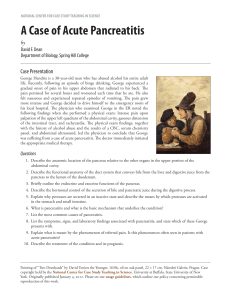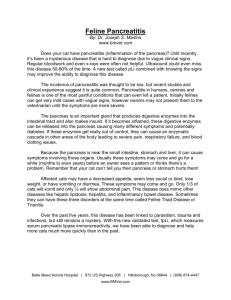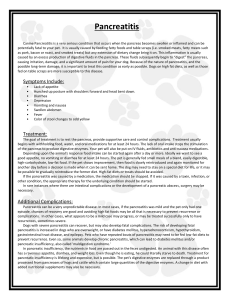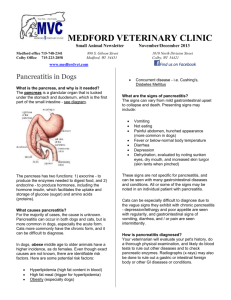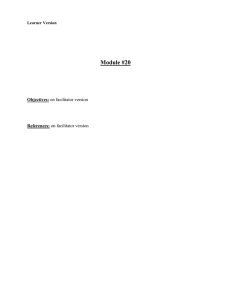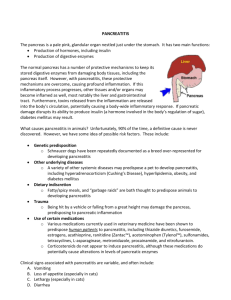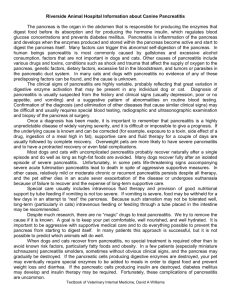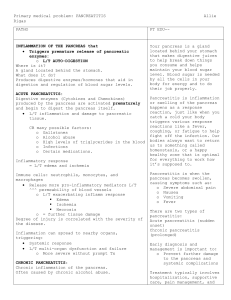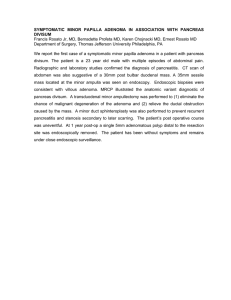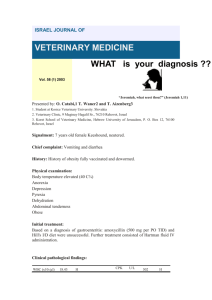What is Pancreatitis?
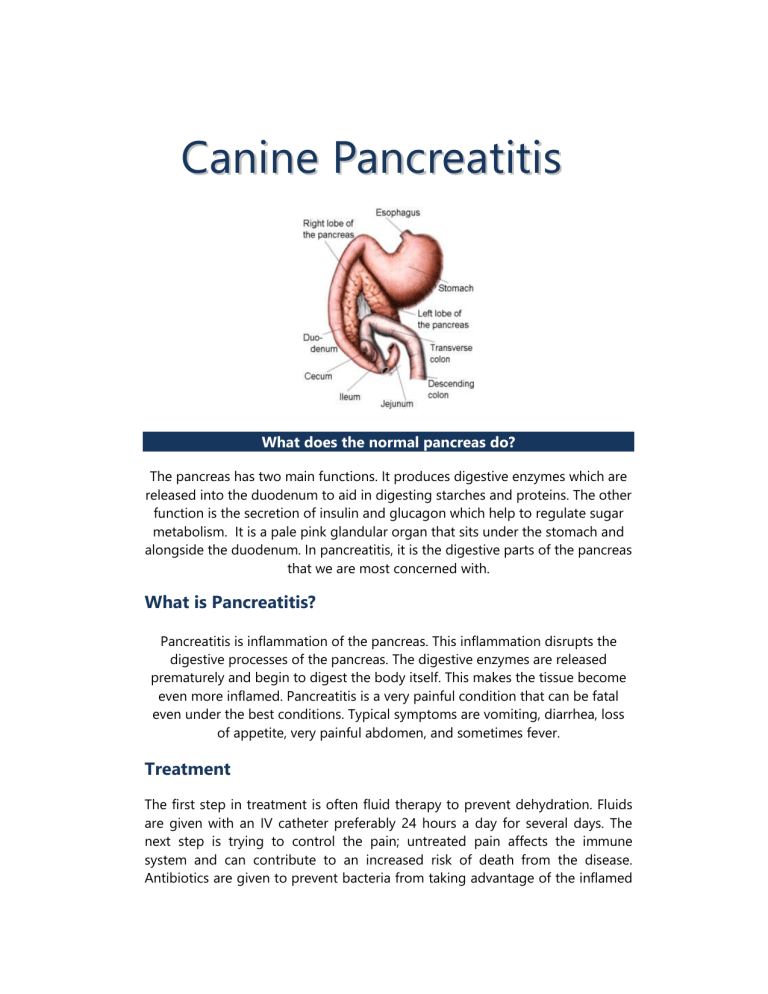
C a n i i n e P a n c r r e a t t i i t t i i s s
What does the normal pancreas do?
The pancreas has two main functions. It produces digestive enzymes which are released into the duodenum to aid in digesting starches and proteins. The other function is the secretion of insulin and glucagon which help to regulate sugar metabolism. It is a pale pink glandular organ that sits under the stomach and alongside the duodenum. In pancreatitis, it is the digestive parts of the pancreas that we are most concerned with.
What is Pancreatitis?
Pancreatitis is inflammation of the pancreas. This inflammation disrupts the digestive processes of the pancreas. The digestive enzymes are released prematurely and begin to digest the body itself. This makes the tissue become even more inflamed. Pancreatitis is a very painful condition that can be fatal even under the best conditions. Typical symptoms are vomiting, diarrhea, loss of appetite, very painful abdomen, and sometimes fever.
Treatment
The first step in treatment is often fluid therapy to prevent dehydration. Fluids are given with an IV catheter preferably 24 hours a day for several days. The next step is trying to control the pain; untreated pain affects the immune system and can contribute to an increased risk of death from the disease.
Antibiotics are given to prevent bacteria from taking advantage of the inflamed
Canine Pancreatitis pancreas. Medications are also given to try to reduce nausea. Until recently fasting an animal with pancreatitis for several days was the recommended feeding plan for treatment. Recent studies, however, have shown that feeding foods low in fat can actually help the pancreas return to proper function. Once feeding does begin it is very important to feed foods low in fat and to keep table food and fatty treats away from these dogs. There is always the potential that a dog that has had pancreatitis will have a reoccurrence.
What causes Pancreatitis?
In many cases we never find out exactly what causes this condition, however there are some events that can cause pancreatitis.
Hormonal imbalances from hypothyroidism, Diabetes mellitus, and hypercalcemia can all predispose a dog to pancreatitis.
Use of certain medication can also put a patient at increases risk for developing this condition. The most common medications are antibiotics containing sulfa, chemotherapy agents, and anti-seizure medications.
Trauma to the pancreas as from a car accident or surgical manipulation can cause inflammation in the pancreas.
Tumors of the pancreatic ducts can also cause this condition.
Page 2
